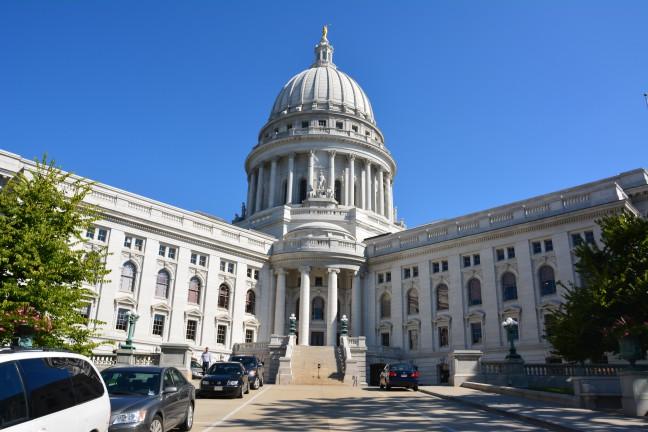Madison City Council ended negotiations with Gebhardt Development after 11 and approved Stone House Development as the Doyle Square Block 88 Development Team on Sept. 3.
Ald. Mike Verveer, 4th District, said Stone House Development was one of the respondents to the city’s request for proposals and was originally recommended by the negotiation team to the council.
“The Stone House Development proposal was the most straightforward and least complex plan,” Veveer said. “It was the middle ground of the three proposals we received.”
Verveer said the city chose to pursue negotiations with Gebhardt because it had the most ambitious plan regarding units designated for fixed low-income renters — a main goal of the block 88 section of the project.
The Judge Doyle Square project was created as part of the larger push to revamp downtown Madison through the new Downton Plan adopted by the city in 2012. Verveer said the council attempted to solve problems with the plan through negotiations with the goals of the project in mind in order to reward [Gebhardt’s] ambition.
In a closed session in late August, the financial committee worked with the city to determine whether or not to move forward with Gebhardt. The city moved to cease negotiations with Gebhardt after failing to resolve discrepancies in the company’s construction plan upon conferring with the committee.
Ald. Keith Furman, 19th District, said the issues with Gebhardt stemmed from the size and scope of the project which caused complications the city did not believe it could work through.
The main issue with Gebhardt’s plan, Furman said, was to construct the base of the building out of an engineered wood frame as the podium on top of the underground parking garage already in place on block 88.
This construction technique is not legal under state law, Furman said. Fixing this fundamental issue within the structure would cost time and money — something the City was unable to reconcile.
“After exhausting all sorts of options, there just wasn’t a path forward with Gebhardt Development,” Verveer said. “They would need to spend the extra time at the additional cost to build the structural support.”
Stone House Development’s proposal entails 159 apartments including 27 studios, 88 one-bedrooms and 44 two-bedrooms. The plan details 20 apartments for renters with incomes at or below 60% of county income, and 17 apartments for renters with incomes at or below 80% of county income.
In comparison with Gebhardt Development, Stone House Development offers fewer low-incoming housing options. The Gebhardt plan proposed 196 apartments with 78 apartments for renters with incomes at or below 60% of county income. Despite the differences, the city sees it as their most feasible and workable option.
“The biggest advantage with Stone House is that they don’t require expensive modifications to the podium that’s currently in place, and that will allow their project to be built much easier and with less complication,” Verveer said.
Furman said he has hope negotiations will produce more units as low-income housing options.
“We are hopeful that through negotiations with Stone House, they understand that we would like to see them get creative about possibly having more [affordable] units,” Furman said. “But we also are accepting that if their proposal is what we get, it’s what we get.”
The developer switch is another snag in the city’s project, which has experienced multiple hang-ups with other developers and issues since the project commenced in 2016. The concern of the council members to move along the progress of the project is a key issue throughout the community.
‘Motion creates emotion’: New Judge Doyle Square proposal would bring reflective building to city
State Sen. Fred Risser, D-Madison, highlighted the issue of timeliness, and he said while the project has had problems, he hopes the city can come to a consensus to implement it to the satisfaction of everyone.
“The City has already spent some of our taxpayers’ money to get out from under one contract,” Risser said. “It would be a great project once we get it finished and I urge the City’s founders to move ahead on it.”
Despite the fact the difficulties that have arisen in the construction of the project, the council members have high hopes for the project’s impacts upon completion.
Furman said that he forsees many benefits of the project.
“It adds add more affordable housing to the downtown area, and it helps utilizes a property that was not being well utilized previously,” Furman said.












